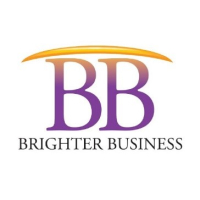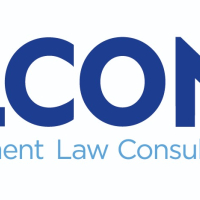24.06.2024
In today's fast-paced world, disputes are an inevitable part of professional and personal interactions. Whether in civil, workplace, or other settings, conflicts can escalate quickly, leading to strained relationships and costly legal battles. Mediation, however, offers a structured, efficient, and cost-effective approach to resolving these disputes. Let’s explore how mediation can be a transformative tool for resolving conflicts across various domains.
What is Mediation?
Mediation is a voluntary, confidential process in which a neutral third party, the mediator, facilitates communication between disputing parties to help them reach a mutually acceptable agreement. Unlike litigation or arbitration, mediation emphasizes collaboration and empowers the parties to control the outcome.
Types of Disputes Suitable for Mediation
Civil Disputes
Civil disputes often involve personal matters such as property disagreements, contract issues, and small claims. Mediation in these cases can save time and reduce legal costs, allowing parties to resolve their issues amicably without the need for a court trial.
Example: A dispute over a property boundary or a breach of contract between two parties can be effectively mediated to find a fair resolution, preserving relationships and avoiding the adversarial nature of courtroom battles.
Workplace Disputes
Conflicts in the workplace can range from interpersonal issues between colleagues to disputes over employment terms. Mediation provides a platform for open dialogue, enabling parties to understand each other’s perspectives and work towards a solution that fosters a positive work environment.
Example: Issues such as allegations of harassment, discrimination, or conflicts between management and employees can be addressed through mediation, leading to solutions that promote workplace harmony and productivity.
Commercial Disputes
Business-related conflicts, such as disagreements between partners, supplier disputes, or client contract issues, can significantly impact operations. Mediation provides a pragmatic approach to resolving these disputes quickly and maintaining business relationships.
Example: A disagreement between a supplier and a retailer over delivery terms can be mediated to find a resolution that keeps the supply chain running smoothly and maintains a positive business relationship.
Community Disputes
Conflicts within communities, such as neighborhood disputes or issues involving local services, can disrupt harmony and affect quality of life. Mediation can address these disputes by fostering communication and cooperation among community members.
Example: A dispute between neighbors over noise complaints or shared property usage can be mediated to establish mutually agreeable solutions and improve community relations.
Benefits of Mediation
Cost-Effective
Mediation is generally less expensive than litigation, as it involves fewer procedural requirements and can be resolved more quickly.
Time-Efficient
Disputes can often be resolved in a matter of days or weeks, compared to the months or years that litigation might take.
Confidential
Mediation proceedings are private, which helps protect the reputations and interests of the parties involved.
Preserves Relationships
By focusing on collaboration and mutual understanding, mediation can preserve personal and professional relationships that might otherwise be damaged by contentious litigation.
Empowering
Parties have control over the outcome and are actively involved in crafting the resolution, leading to more satisfactory and sustainable agreements.
The Mediation Process
Initiation
Either party can propose mediation, and both must agree to participate. They then select a mediator who is impartial and experienced in the relevant area of dispute.
Preparation
The mediator meets with each party to understand their perspectives and the key issues. This helps set the stage for productive discussions during the mediation session.
Mediation Session
The parties come together in a confidential setting to discuss their issues with the mediator’s guidance. The mediator facilitates communication, helps clarify misunderstandings, and encourages collaborative problem-solving.
Agreement
If the parties reach an agreement, the mediator helps draft a settlement that outlines the terms. This agreement can be legally binding if the parties choose to formalize it.
Follow-Up
The mediator may follow up with the parties to ensure compliance with the agreement and address any remaining concerns.
Conclusion
Mediation is a versatile and effective method for resolving disputes in various contexts, from civil and workplace conflicts to family and commercial disagreements. By focusing on collaboration and mutual respect, mediation not only resolves conflicts but also promotes enduring solutions and preserves valuable relationships. For professionals seeking to navigate disputes efficiently and amicably, mediation stands out as a practical and empowering option.
Resolving Disputes Through Mediation: A Professional’s Guide
In today's fast-paced world, disputes are an inevitable part of professional and personal interactions. Whether in civil, workplace, or other settings, conflicts can escalate quickly, leading to strained relationships and costly legal battles. Mediation, however, offers a structured, efficient, and cost-effective approach to resolving these disputes. Let’s explore how mediation can be a transformative tool for resolving conflicts across various domains.
What is Mediation?
Mediation is a voluntary, confidential process in which a neutral third party, the mediator, facilitates communication between disputing parties to help them reach a mutually acceptable agreement. Unlike litigation or arbitration, mediation emphasizes collaboration and empowers the parties to control the outcome.
Types of Disputes Suitable for Mediation
Civil Disputes
Civil disputes often involve personal matters such as property disagreements, contract issues, and small claims. Mediation in these cases can save time and reduce legal costs, allowing parties to resolve their issues amicably without the need for a court trial.
Example: A dispute over a property boundary or a breach of contract between two parties can be effectively mediated to find a fair resolution, preserving relationships and avoiding the adversarial nature of courtroom battles.
Workplace Disputes
Conflicts in the workplace can range from interpersonal issues between colleagues to disputes over employment terms. Mediation provides a platform for open dialogue, enabling parties to understand each other’s perspectives and work towards a solution that fosters a positive work environment.
Example: Issues such as allegations of harassment, discrimination, or conflicts between management and employees can be addressed through mediation, leading to solutions that promote workplace harmony and productivity.
Commercial Disputes
Business-related conflicts, such as disagreements between partners, supplier disputes, or client contract issues, can significantly impact operations. Mediation provides a pragmatic approach to resolving these disputes quickly and maintaining business relationships.
Example: A disagreement between a supplier and a retailer over delivery terms can be mediated to find a resolution that keeps the supply chain running smoothly and maintains a positive business relationship.
Community Disputes
Conflicts within communities, such as neighborhood disputes or issues involving local services, can disrupt harmony and affect quality of life. Mediation can address these disputes by fostering communication and cooperation among community members.
Example: A dispute between neighbors over noise complaints or shared property usage can be mediated to establish mutually agreeable solutions and improve community relations.
Benefits of Mediation
Cost-Effective
Mediation is generally less expensive than litigation, as it involves fewer procedural requirements and can be resolved more quickly.
Time-Efficient
Disputes can often be resolved in a matter of days or weeks, compared to the months or years that litigation might take.
Confidential
Mediation proceedings are private, which helps protect the reputations and interests of the parties involved.
Preserves Relationships
By focusing on collaboration and mutual understanding, mediation can preserve personal and professional relationships that might otherwise be damaged by contentious litigation.
Empowering
Parties have control over the outcome and are actively involved in crafting the resolution, leading to more satisfactory and sustainable agreements.
The Mediation Process
Initiation
Either party can propose mediation, and both must agree to participate. They then select a mediator who is impartial and experienced in the relevant area of dispute.
Preparation
The mediator meets with each party to understand their perspectives and the key issues. This helps set the stage for productive discussions during the mediation session.
Mediation Session
The parties come together in a confidential setting to discuss their issues with the mediator’s guidance. The mediator facilitates communication, helps clarify misunderstandings, and encourages collaborative problem-solving.
Agreement
If the parties reach an agreement, the mediator helps draft a settlement that outlines the terms. This agreement can be legally binding if the parties choose to formalize it.
Follow-Up
The mediator may follow up with the parties to ensure compliance with the agreement and address any remaining concerns.
Conclusion
Mediation is a versatile and effective method for resolving disputes in various contexts, from civil and workplace conflicts to family and commercial disagreements. By focusing on collaboration and mutual respect, mediation not only resolves conflicts but also promotes enduring solutions and preserves valuable relationships. For professionals seeking to navigate disputes efficiently and amicably, mediation stands out as a practical and empowering option.
Profile:
Sharon Paxman is a mediator with a robust track record and professional accreditations that…
Legal
In today's fast-paced and dynamic business landscape, conflicts and disputes are inevitable. Whether it's a…
More Articles
Property
Understanding the Importance and Types of Emergency...
Why Do We Need Emergency Lighting?
Emergency lighting plays a critical role in ensuring life safety first in any…
Employment & HR
Labour’s new Employment Rights Bill: challenges employers...
The introduction of Labour’s Employment Rights Bill on 10th October 2024 has created a significant shift in how…
Would you like to promote an article ?
Post articles and opinions on Professionals UK
to attract new clients and referrals. Feature in newsletters.
Join for free today and upload your articles for new contacts to read and enquire further.




